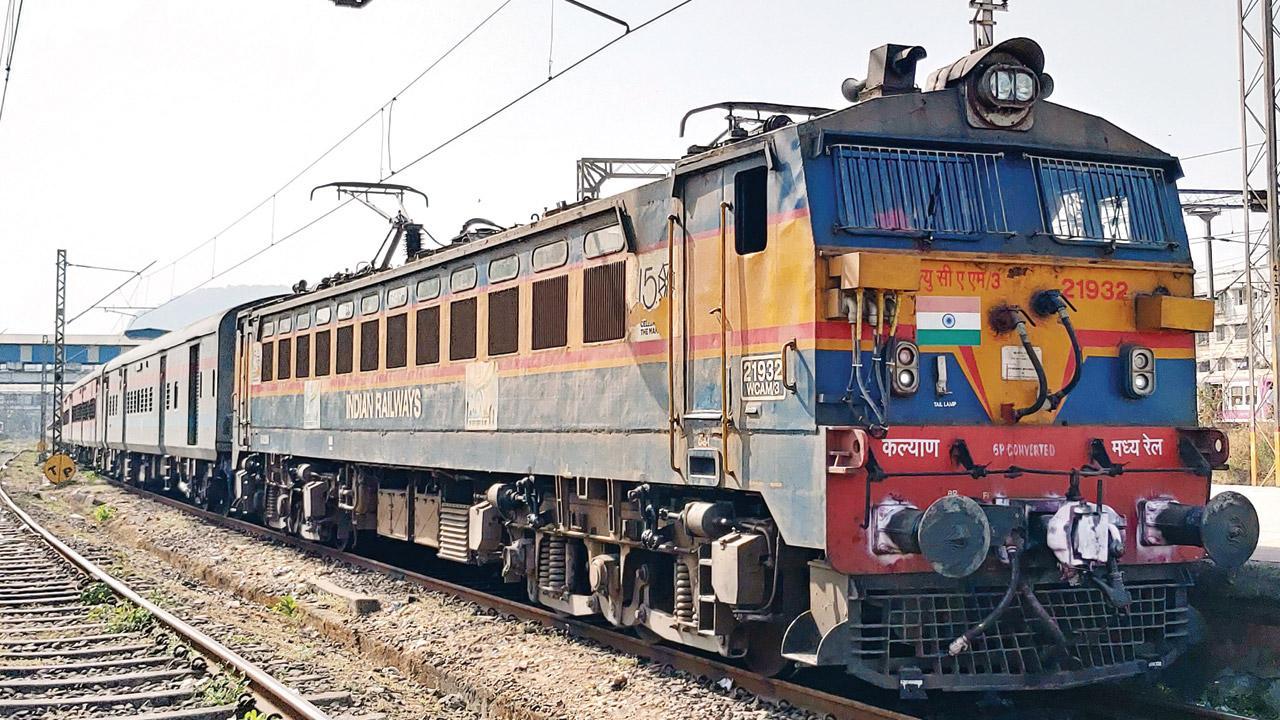The passenger train with an electric locomotive travelled 304 kilometres from Diva to Ratnagiri on Thursday

The first electric locomotive ran from Diva to Ratnagiri on Thursday afternoon. Pic/Aditya Kambli
In what can be termed as historic, a Diva-Ratnagiri passenger train on Thursday became the first from Mumbai side to roll down the tracks of the Konkan Railway with an electric locomotive. The train attached with a dual-voltage WCAM-3 class engine went from Diva to Ratnagiri, said officials.
On January 19, it was the Yeshwantpur-Karwar express that went into the annals of railway electrification history for being the first passenger train to be hauled by an electric loco on the newly electrified stretch of Thokur near Mangaluru to Karwar of the Konkan Railway Corporation Ltd (KRCL).
Once complete, the 741-km Konkan Railway will become one of the longest stretches of the independent railway network in the country to go electric, and ensure seamless travel. The KRCL manages the rail line between Roha in Maharashtra and Thokur in Karnataka, with 970 km of tracks under the jurisdiction.
The work on 443 km, including Roha-Ratnagiri (204 km) and Thokur-Karwar (239 km) has been commissioned. A senior railway official said that freight trains have been running on and off with electric locos along with diesel ones for support, but passenger trains have started only on two commissioned sections on either side. The remaining work will be completed soon.
While the foundation stone for the Konkan Railway electrification was laid in November 2015, the project was approved by the Union Ministry of Railways in 2016 at a cost of Rs 1,287 crore. As of today, this work is 87 per cent completed.
There have been challenges in the electrification of the Konkan Railway network due to its extremely difficult terrain, with special arrangements at many locations to keep it moving in monsoon. The network has 1,880 bridges and 91 tunnels, with the longest tunnel of 6.5 km at Karbude near Ratnagiri and tallest 64-metre-high bridge over Panval river at Ratnagiri.
To save Rs 150 crore a year
Sources said the electrification of rail lines will reduce the cost of energy as well as local pollution. It will save the cost of fuel and make operations easier, leading to savings of R150 crore per year.
 Subscribe today by clicking the link and stay updated with the latest news!" Click here!
Subscribe today by clicking the link and stay updated with the latest news!" Click here!










